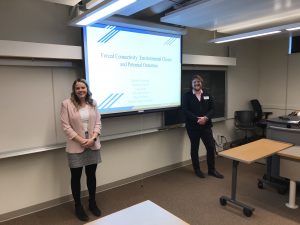Eating disorders in adolescents have risen dramatically throughout the years, creating an epidemic among men and women. With pressure from the media, peers and family, it’s not surprising that eating disorders have claimed the highest mortality rate among any mental illness (Welch, E., Ghaderi, A., & Swenne I., 2015). To combat this epidemic, researchers have strived to create a variety of treatment options for individuals seeking help. Treatment options include, but are not limited to: long-term treatment, mindfulness-based treatment and multiple and single family therapy. Each treatment is successful for its own reasons, but researchers have noted that the best type of treatment for an eating disorder requires a well-built support system (Jewell et al., 2016). Although, despite this effort, the problem among most individuals isn’t the treatment itself.
Faculty sponsor: Amy Hammermeister-Jordan



